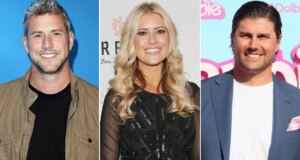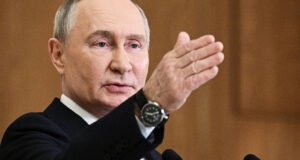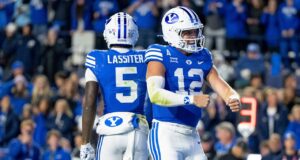In 1964, two young academics clambered into a red Mini and, armed with a mountain of printed slips, set out to conduct what would become the definitive survey of English folklore and traditions for the next 60 years.
John Widdowson and Paul Smith went to town centres, community halls, Women’s Institute meetings. They handed the simple forms out to anyone who visited Sheffield University, where they were based. And they wanted to know the answer to one simple question: what do you know to be true?
Now held in the university’s archives, the thousands of replies make for illuminating reading, creating a patchwork of observances, superstitions and local legends, passed down through families and communities.
“Don’t bring hawthorn blossom into the house. It’s bad luck,” wrote David Smith of London, who had learned this from his mother, Molly, then living in Scarborough.
The story related by Florence Swaby of Hertfordshire was perhaps a little more dramatic: “Just outside the village, part of the road is called the white highway, and at that point there are two large open fields and the devil haunts there. This is the story handed down from my great grandmother and really happened …”
Exactly six decades on, the Survey of Language and Folklore is finally being updated, with a more scientific method than two men in a Mini handing out questionnaires almost at random. The Centre for Contemporary Legend, based at Sheffield Hallam University, is to conduct the National Folklore Survey, financed with £271,000 of government money from the UK Research and Innovation body.
The project will be led by David Clarke along with Diane Rodgers, also of Sheffield Hallam, and Ceri Houlbrook and Owen Davies who founded the MA Folklore Studies course at Hertfordshire University. It will be conducted by Ipsos-UK, polling almost 3,000 people in the first phase to create a clearer picture of what folklore means today.
The new survey aims to address “the lack of robust research evidence into the cultural value of folklore in post-Brexit, post-pandemic, multicultural England. It aims to create new data to answer two research questions: ‘How have folkloric beliefs and practices shaped England’s social, cultural and spiritual identity?’ and ‘To what extent are ideas of nationalism and colonial attitudes informed by contemporary notions of English folklore?’”
This is, said Clarke, the right time to do it. “I’ve been wanting to get a new survey off the ground for some years,” he says. “But there never seemed to be an appetite for it until now.”
What’s changed is that in 2024, folklore is having a bit of a moment, perhaps exemplified by actor and writer Charlie Cooper’s BBC series Myth Country, in which he takes a look at folklore and legends from around the country.
“We’re hoping to get a much more representative sample of people than were surveyed during the 1964 project,” said Clarke. “We want to find out what people think of as folklore in this day and age, and how it relates to national identity.
“As the historian David Olusoga has pointed out, the English have something of a conflicted sense of identity. Folklore is the social glue that holds us together. We can disagree on politics, fight the culture wars, but traditions, customs and stories passed down bring people together.”
The new survey will concentrate on gathering information about customs and beliefs, and traditional narratives.
“It can be anything from legends such as Robin Hood to local haunted houses or areas of UFO sightings,” said Clarke. “But folklore is really any custom or story passed down through generations … we might think of things like morris dancing or people chasing cheese down hills, but events such as the Notting Hill carnival have been going so long they’re now part of custom and tradition.”
The sea change in appetite for a new survey, which Clarke has long been petitioning for, is down to several factors, he says. “Folklore is definitely having a resurgence,” he says, “helped by programmes such as Charlie Cooper’s. A lot of younger people are showing an interest, and even getting involved in activities such as morris dancing.
“You might think that in an increasingly technological world we have no place for folklore, but it seems to be the opposite. Technology and mobile phones create a kind of disenchantment in people’s lives, and I think they’ve started to realise that. The revival of interest in folklore is a wonderful thing, and long may it continue.”




